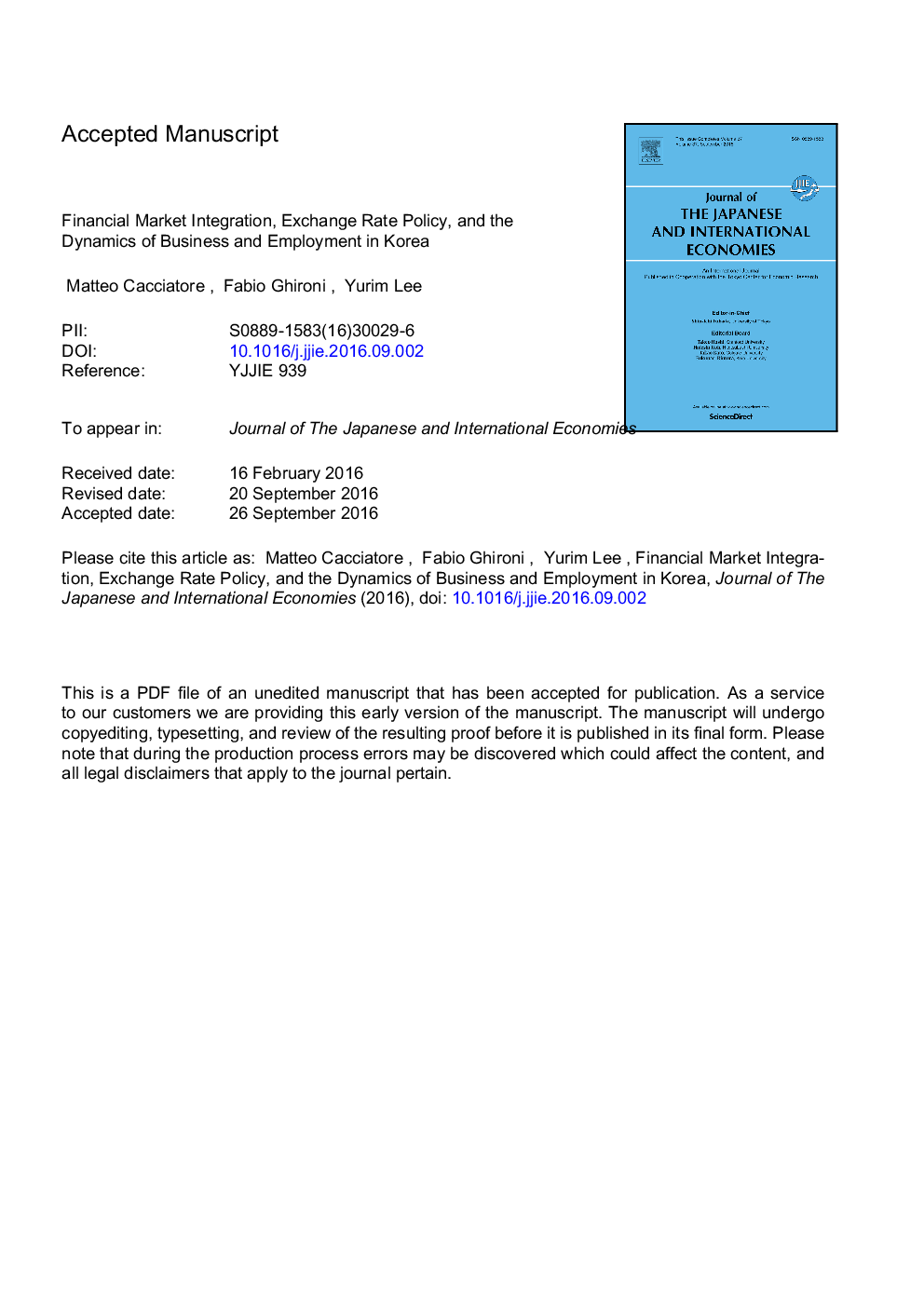| Article ID | Journal | Published Year | Pages | File Type |
|---|---|---|---|---|
| 5101262 | Journal of the Japanese and International Economies | 2016 | 64 Pages |
Abstract
We study the consequences of different degrees of international financial market integration and exchange rate policies in a calibrated, medium-scale model of the Korean economy. The model features endogenous producer entry into domestic and export markets and search-and-matching frictions in labor markets. This allows us to highlight the consequences of financial integration and the exchange rate regime for the dynamics of business creation and unemployment. We show that, under flexible exchange rates, access to international financial markets increases the volatility of both business creation and the number of exporting plants, but the effects on employment volatility are more modest. Pegging the exchange rate can have unfavorable consequences for the effects of terms of trade appreciation, but more financial integration is beneficial under a peg if the economy is subject to both productivity and terms of trade shocks. The combination of a floating exchange rate and internationally complete markets would be the best scenario for Korea among those we focus on.
Keywords
Related Topics
Social Sciences and Humanities
Economics, Econometrics and Finance
Economics and Econometrics
Authors
Matteo Cacciatore, Fabio Ghironi, Yurim Lee,
